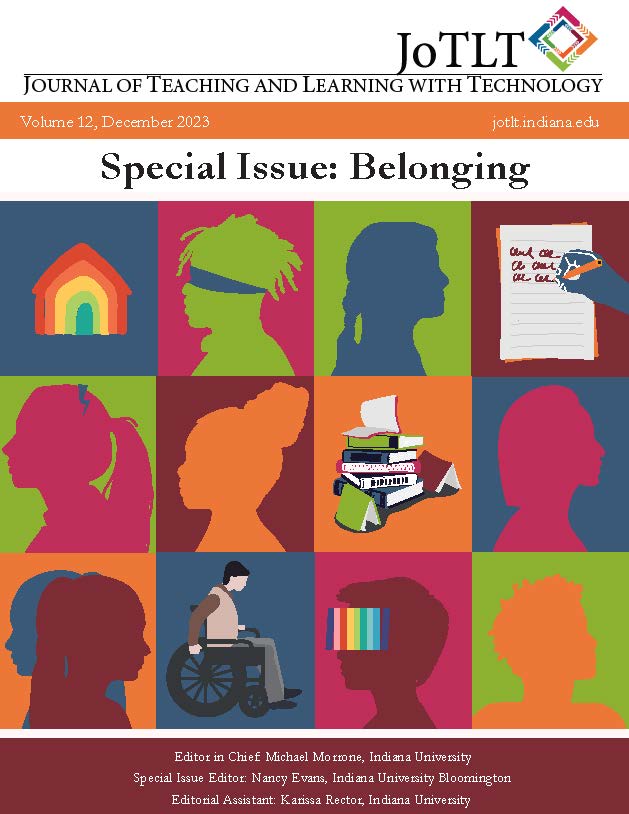Transformative Praxis A Critical Design Framework for Belonging and Inclusion in Technology-Rich Learning Spaces
Main Article Content
Abstract
Drawing on transformative, critical, and culturally responsive and sustaining traditions of pedagogy and instructional design, we present a technology-focused framework for decentering normative forces along the lines of race, ethnicity, class, language, religion, ability, sex, and gender in online higher education learning spaces that honors each participant for who they are with respect to their identity markers and their intersectional community memberships to promote inclusion and belonging. These normative forces—which simultaneously crowd out and make hypervisible diverse identities—predispose the ends and processes of teaching and learning and structure the nature of academic disciplines. This is particularly apparent online where engagement is decoupled from traditional anchors of relationships and influenced by difference-blind neoliberal perspectives. In response, we provide a framework for inclusion and belonging along two vectors. The first vector is a critical design process inspired by backward design principles: inquiring, translating, activating, and reflecting. The second is a set of inclusive considerations grounded in culturally relevant and responsive pedagogy and the Universal Design for Learning framework: asset-based frames, authentic multiple modes, and mixed mirrors and windows. This process includes an opportunity to interrogate the role of technology as a mediator of learning and teaching for belonging. We further assert that the instructor also needs to engage in identity work to interrogate their positionality in online environments with respect to not only observable and cultural identity markers but also academic disciplinary identity. To illustrate our framework, we provide reflections on the design and enactment of online and technology-rich activity structures that promote inclusion and belonging.
Downloads
Article Details
- Authors retain copyright and grant the Journal of Teaching and Learning with Technology (JoTLT) right of first publication with the work simultaneously licensed under a Creative Commons Attribution License, (CC-BY) 4.0 International, allowing others to share the work with proper acknowledgement and citation of the work's authorship and initial publication in JoTLT.
- Authors are able to enter separate, additional contractual agreements for the non-exclusive distribution of the journal's published version of the work (e.g., post it to an institutional repository or publish it in a book), with an acknowledgement of its initial publication in JoTLT.
- In pursuit of manuscripts of the highest quality, multiple opportunities for mentoring, and greater reach and citation of JoTLT publications, JoTLT encourages authors to share their drafts to seek feedback from relevant communities unless the manuscript is already under review or in the publication queue after being accepted. In other words, to be eligible for publication in JoTLT, manuscripts should not be shared publicly (e.g., online), while under review (after being initially submitted, or after being revised and resubmitted for reconsideration), or upon notice of acceptance and before publication. Once published, authors are strongly encouraged to share the published version widely, with an acknowledgement of its initial publication in JoTLT.
